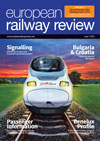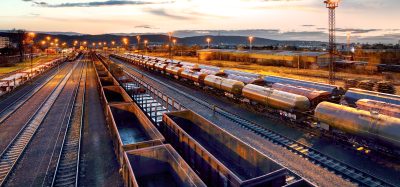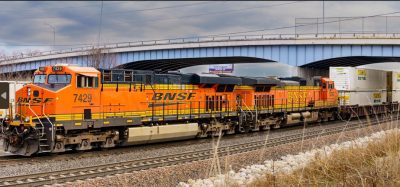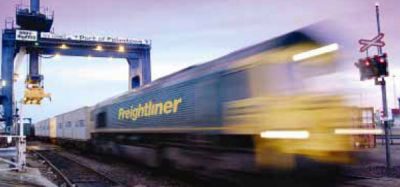Rail freight sector must outshine road haulage
Posted: 26 February 2013 | | No comments yet
A new study by consultancy firm Bain & Company into the European rail freight sector has revealed some truly shocking statistics. The report found that over a five-year period (2007-2011), the main state operators in mainland Europe – Germany, France, Belgium, the Netherlands, Switzerland, Italy and Spain – accumulated net losses of €5 billion from rail freight. That is €1 billion a year to be stumped up by hardpressed taxpayers. Of course, that period covers the most severe economic recession for 70 years, so there are mitigating circumstances. In 2008-2009 even Germany, with the soundest economy in the Eurozone, suffered dramatic traffic losses and DB Schenker plunged into the red by more than €100 million. But perhaps more interesting is that over half that €5 billion of losses was accounted for by the second biggest economy, France. State-owned rail freight operator SNCF Fret is a basket case, losing money hand over fist. Although this would already have been apparent to the people who ordered the report: the Bain & Company study was commissioned by SNCF…


A new study by consultancy firm Bain & Company into the European rail freight sector has revealed some truly shocking statistics. The report found that over a five-year period (2007-2011), the main state operators in mainland Europe – Germany, France, Belgium, the Netherlands, Switzerland, Italy and Spain – accumulated net losses of €5 billion from rail freight. That is €1 billion a year to be stumped up by hardpressed taxpayers.
Of course, that period covers the most severe economic recession for 70 years, so there are mitigating circumstances. In 2008-2009 even Germany, with the soundest economy in the Eurozone, suffered dramatic traffic losses and DB Schenker plunged into the red by more than €100 million.
But perhaps more interesting is that over half that €5 billion of losses was accounted for by the second biggest economy, France. State-owned rail freight operator SNCF Fret is a basket case, losing money hand over fist. Although this would already have been apparent to the people who ordered the report: the Bain & Company study was commissioned by SNCF.
The report highlighted SNCF Fret’s uncom – petitive operations compared to those of the private operators that have entered the sector in France in the wake of the European Union’s opening-up of the market to competition in 2006, operators such as Euro Cargo Rail (now owned by German state operator DB Schenker) and Eurotunnel’s Europorte rail freight subsidiary. Productivity is about a third worse at SNCF Fret compared to the incomers, principally because of the generous conditions of employment at the state operator and the amount of time that staff are allowed off.
In these circumstances, it is unsurprising, although unforgiveable, that SNCF Fret has resorted to unfair practices in an effort to tilt the playing field in its favour. The French competition authority, the Autorité de la Concurrence, recently fined the state operator more than €60 million, principally for misusing confidential information supplied to SNCF in its role as national rail infrastructure manager by com – petitors in the rail freight field.
However, the Bain & Company report makes clear that in some ways the struggle between the state-owned operators and the new entrants is a side issue on the European freight scene. The incomers are hardly laughing all the way to the bank, making only small profits (if any) themselves.
The real issue is how the rail industry, whoever is running it, squares up to road competition. And here the evidence is that the road haulage industry has been much more nimble in reacting to the economic crisis than the rail industry. The Bain & Company report highlights that between 2008 and 2010, rail freight rates generally increased in major markets such as Germany, France and Italy. In contrast, road haulage rates fell.
In traffic areas where rail is particularly uncompetitive, such as single wagonloads, the difference in price for transport is most marked, with rail being around 25% more expensive than road. It is little wonder that rail operators all over Europe have been trying to shed wagonload traffic, in the light of the sheer uphill struggle it is to make such freight profitable.
SNCF bigwigs have made it plain that some harmonisation of employment regulations with the other rail freight operators is essential if SNCF Fret is to have a future. But in some ways this is a side issue. Road freight is the real competitor, and railways all over Europe have much to do if they are to hold their own against lorries. SNCF Fret’s €2.5 billion loss is shocking. But it shows the industry across the continent what can happen if management is not ever-vigilant in the fight to keep costs down. Customers will simply walk out of the door, and there is a road freight industry with spare capacity ready to welcome them with open arms.







